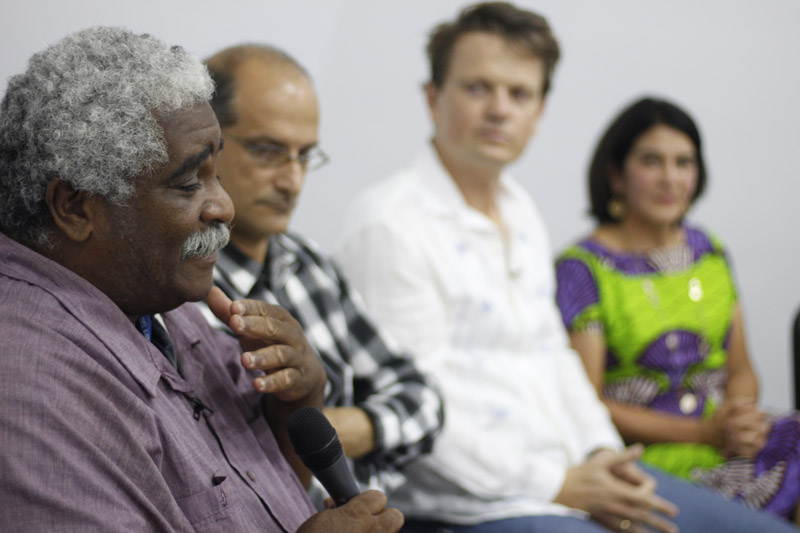In the summer of 1900, five warships –the McClellan, the McPherson, the Crook, the Sedgwick, and the Burnside– carried unusual “cargo” from Cuba to Harvard. Over 1,200 Cuban teachers from across the island arrived in Cambridge to attend the Harvard Summer School for Cuban Teachers, where they were trained in topics such as culture and pedagogy.
This was an initiative of Alexis Frye, superintendent of schools in Cuba during the US military occupation. With the support of Charles W. Eliot, former president of Harvard University, and the financial collaboration of some citizens from Boston and Cambridge, the Cuban teachers could travel with the aim of improving the Cuban educational system after the war against Spain.
Historian Ramiro Guerra and poet Regino Boti participated in that expedition.
In a documentary by journalist and filmmaker Danny Gonzalez Lucena, he shows that stage of the Cuban pedagogy history, which had a great significance in the consolidation of the nationalism in Cuba. Opposite to be an imperialist action, it turned out to be a reaffirmation of nationalism, asserted the professors themselves about it the path some followed in the future.
Before the screening of such documentary, Harvard teachers Víctor Fowler, Yoel Cordoví, Rainel Schultz, Marial Iglesias, made up a panel to discuss the documentary and highlighted that the values showed by Gonzalez were valid after more than a century.
For Rainer Schultz, president of the advanced studies consortium in Havana, of which the University of Harvard is part, it is very important to screen this documentary now, given the current relations between US and Cuba. “We wish to build bridges, no walls.”
For Historian Marial Iglesias, that expedition was the first official cultural interchange between both countries. The encounter between Cuban and Harvard teachers, as well as Boston´s civil society, had a great impact on both sides. It was a welcoming scenary that showed technological progress, a progressive society. Also, from such an event emerged crucial reforms such as the movement for women's rights. On the other part, it was a racist and sexist University, which even included eugenic programs.
The arrival of thousands of Cuban young people moved the US society that had a completely different idea about our country, and they even got surprised about the Cuban good manners, according to the press.
Cordovi stressed the influence of such interchange on the Cuban pedagogy that always had a patriotic and nationalist tradition inherited by Cuban figures such as José de la Luz y Caballero, José Antonio Saco, Félix Varela, Domingo del Monte. That experience in Boston strengthened such values for most of those young people and it highlighted the imprint of great Cuban historian Sergio Guerra at that time who took part in that venture.
Fower announced that a list of the thousand of professors who took part in that expedition will be made public so that they can be in contact with their relatives. According to Marial, they will carry out an encounter next year on occasion of the coming 120 years of such an important event.
The documentary also provides a human and complex side of this story through the Frye point of view and his affair with a Cuba teacher who he got married with. Frye was against the meddling policy of Leonard Wood, a former top representative of the US government in Cuba at that time, and he denounced him in the face of US authorities. Due to Frye`s accusations, Leonard Wood abdicated.
Before their return to Cuba at the end of the summer, the teachers visited New York and they were welcomed by former president William McKinley, who was killed some years after in Buffalo, New York.
This professional interchange facilitated future academic visits of Cuban teachers and professors in US universities, in different stages. Even today, when we are suffering more and more radical restrictions, the Cuban academic issue is still beneficial for Cuba and the US.
At the end of the talk, Cuban actor and director Osvaldo Doimeadios, announced the premiere of the play I have a daughter at Harvard by Cuban filmmaker Arturo Soto, who was inspired by that historical journey. This play was conceived as a great show including choreographies, live music, Cuban vernacular stages. The play will be on listings from October 10 to 20, except on October 14, by Doimeadios´s general management, and will be dedicated to Cuban Culture Day (October 20) and the 500th anniversary of Havana´s foundation.
Obviously, they want to bet for actions of this kind. The screening of the stage play in the current context we are living is a gesture making easier the safeguard of culture and exchange between the US and Cuba.


Deje un comentario